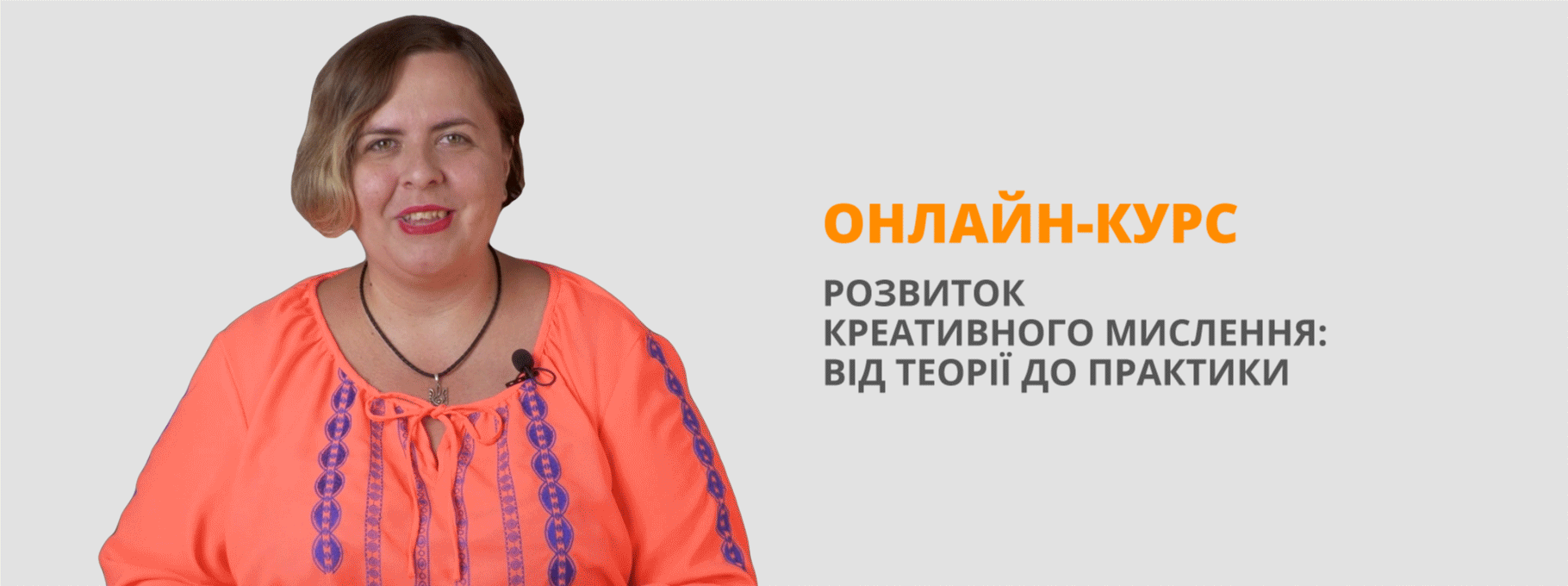Добірка рифмованих віршів Mother Goose
Mother Goose
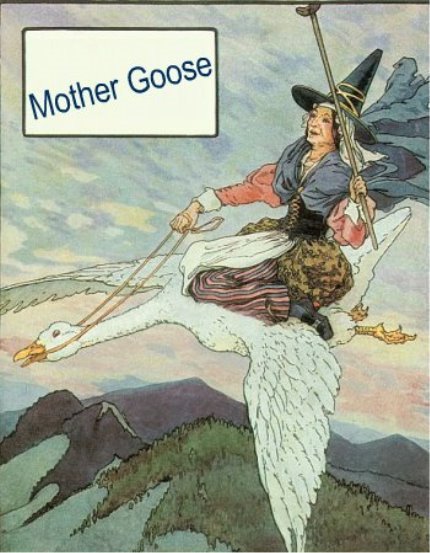
Mother Goose is often cited as the author of hundreds of children’s stories that have been passed down through oral tradition and published over centuries. Various chants, songs, and even games have been attributed to her, but she is most recognized for her nursery rhymes, which have been familiar with readers of all generations. Her work is often published as Mother Goose Rhymes.
Despite her celebrated place in children’s literature, the exact identity and origin of Mother Goose herself is still unknown. Some believe that the original Mother Goose was a real woman who lived in Boston during the later half of the 17th century. After being widowed by Isaac Goose, a woman named either Elizabeth Foster Goose or Mary Goose (depending on sources) moved in with her eldest daughter, entertaining her grandchildren with amusing jingles which quickly gained popularity with the neighborhood children. According to the legend, her son-in-law, a publisher, printed her rhymes, and thus the reputation of Mother Goose was born.
However, literary historians often dismiss the possibility of a Bostonian Mother Goose, as the existence of various French texts that refer to Mother Goose at a much earlier date make the American legend improbable. These texts, dating as early as 1626, even show that the French terms “mere l’oye” or “mere oye” (Mother Goose) were already familiar to readers and could be referenced. The figure of Mother Goose may even date back as the 10th century, according to other sources. In an ancient French legend, King Robert II had a wife who often told incredible tales that fascinated children.
Regardless of Mother Goose’s origins, Charles Perrault was the first to actually publish a Mother Goose collection of rhymes and other folk tales in 1697, essentially initiating the fairy tale genre. With the subtitle Les Contes de ma Mère l'Oie (Tales of my Mother Goose), the collection quickly gained popularity all over France. By 1729, Perrault’s collection had been translated into English, in the form of Robert Samber’s Histories or Tales of Past Times, Told by Mother Goose. Samber’s volume was eventually republished in 1786 and brought to the U.S.
English publisher of children’s literature John Newbery later focused on the nursery rhymes, publishing Mother Goose's Melody, or, Sonnets for the Cradle, which helped Mother Goose become further associated with children’s poetry.
Baa, Baa, Black Sheep
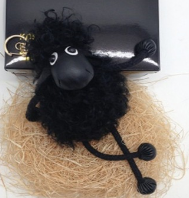
Baa, baa, black sheep
Have you any wool?
Yes sir, yes sir, three bags full.
One for the master,
And one for the dame,
And one for the little boy
Who lives down the lane.
BY MOTHER GOOSE
"Hickory, dickory, dock"
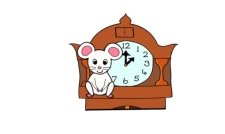
Hickory, dickory, dock,
The mouse ran up the clock;
The clock struck one,
And down he run,
Hickory, dickory, dock.
BY MOTHER GOOSE
"Hey, diddle, diddle"
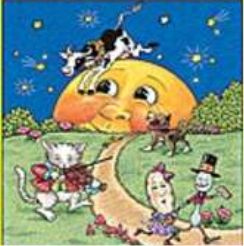
Hey, diddle, diddle,
The cat and the fiddle,
The cow jumped over the moon;
The little dog laughed
To see such sport,
And the dish
ran away with the spoon.
BY MOTHER GOOSE
"Hot-cross buns!" 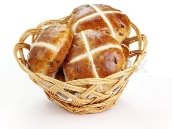
Hot-cross buns!
Hot-cross buns!
One a penny, two a penny,
Hot-cross buns!
If you have no daughters,
Give them to your sons;
One a penny, two a penny,
Hot-cross buns!
BY MOTHER GOOSE
“It's raining, it's pouring ... ”
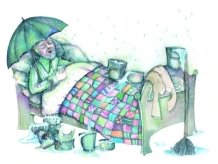
It’s raining, it’s pouring,
The old man’s snoring.
He got into bed
And bumped his head
And couldn’t get up in the
morning.
BY MOTHER GOOSE
"Humpty Dumpty sat on a wall"
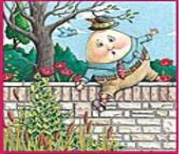
Humpty Dumpty sat on a wall,
Humpty Dumpty had a great
fall;
All the king's horses and all the
king's men
Couldn't put Humpty together
again.
BY MOTHER GOOSE
Jack and Jill
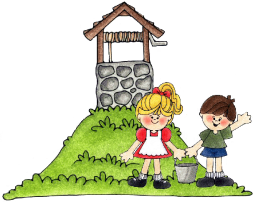
Jack and Jill went up the hill
To fetch a pail of water;
Jack fell down and broke his crown,and Jill came tumbling after.
Up Jack got, and home did trot,
As fast as he could caper,
To old Dame Dob, who patched his nob
With vinegar and brown paper.
BY MOTHER GOOSE
"Jack be nimble"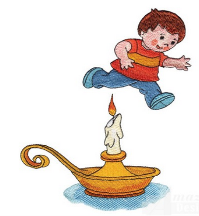
Jack be nimble,
Jack be quick,
Jack jump over
The candlestick.
BY MOTHER GOOSE
"Ladybird, ladybird"
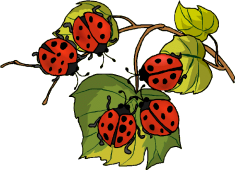
Ladybird, ladybird,
Fly away home,
Your house is on fire
And your children all gone;
All except one
And that's little Ann,
And she has crept under
The warming pan.
BY MOTHER GOOSE
Leap Year Poem
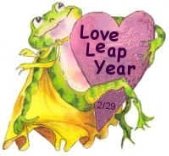
Thirty days hath September,
April, June and November.
All the rest have thirty-one,
Excepting February alone,
And that has twenty-eight days clear
And twenty-nine in each leap year.
BY MOTHER GOOSE
Little Bo-Peep
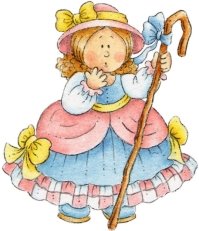
Little Bo-Peep has lost her sheep,
And can't tell where to find them;
Leave them alone, and they'll come home,
Bringing their tails behind them.
Little Bo-Peep fell fast asleep,
And dreamt she heard them bleating;
But when she awoke, she found it a joke,
For they were still all fleeting.
Then up she took her little crook,
Determined for to find them;
She found them indeed, but it made her heart bleed,
For they'd left their tails behind them.
It happened one day, as Bo-Peep did stray
Into a meadow hard by,
There she espied their tails, side by side,
All hung on a tree to dry.
She heaved a sigh and wiped her eye,
And over the hillocks she raced;
And tried what she could, as a shepherdess should,
That each tail be properly placed.
BY MOTHER GOOSE
Little Boy Blue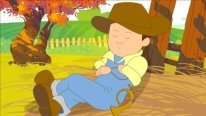
Little boy blue,
Come blow your horn,
The sheep's in the meadow,
The cow's in the corn.
But where is the boy
Who looks after the sheep?
He's under a haystack,
Fast asleep.
BY MOTHER GOOSE
Little Jack Horner
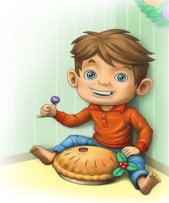
Little Jack Horner
Sat in the corner,
Eating a Christmas pie;
He put in his thumb,
And pulled out a plum,
And said, "What a good boy am I!"
BY MOTHER GOOSE
Little Miss Muffet
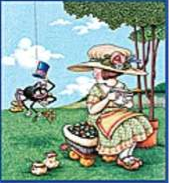
Little Miss Muffet
Sat on a tuffet,
Eating her curds and whey;
Along came a spider,
Who sat down beside her,
And frightened Miss Muffet
away.
BY MOTHER GOOSE
"Polly, put the kettle on"
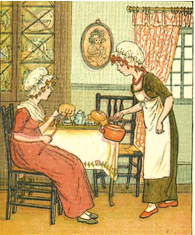
Polly, put the kettle on,
Polly, put the kettle on,
Polly, put the kettle on,
We'll all have tea.
Sukey, take it off again,
Sukey, take it off again,
Sukey, take it off again,
They've all gone away.
BY MOTHER GOOSE
"Pease porridge hot"
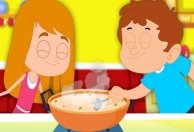
Pease porridge hot,
Pease porridge cold,
Pease porridge in the pot
Nine days old.
BY MOTHER GOOSE
"Pat-a-cake, pat-a-cake, baker's man"
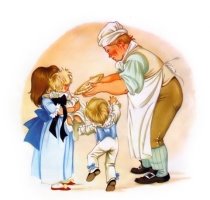
Pat-a-cake, pat-a-cake, baker's man,
Bake me a cake, as fast as you can;
Pat it, prick it, and mark it with B,
Put it in the oven for baby and me.
BY MOTHER GOOSE
"Mary, Mary, quite contrary"
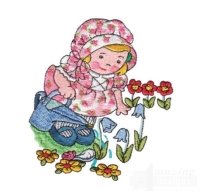
Mary, Mary, quite contrary
How does your garden grow?
With silver bells and cockleshells
And pretty maids all in a row.
BY MOTHER GOOSE
Sing a Song of Sixpence
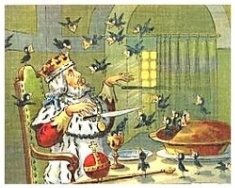
Sing a song of sixpence,
A pocket full of rye,
Four and twenty blackbirds
Baked in a pie.
When the pie was opened
The birds began to sing—
Wasn't that a dainty dish
To set before the king?
The king was in the counting-house
Counting out his money,
The queen was in the parlor
Eating bread and honey,
The maid was in the garden
Hanging out the clothes.
Along came a blackbird
And snipped off her nose.
BY MOTHER GOOSE
"Ride a cockhorse to Banbury Cross"
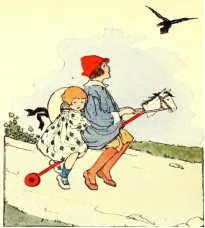
Ride a cockhorse to Banbury Cross,
To see a fine lady upon a white horse;
Rings on her fingers and bells on her toes,
She shall have music wherever she goes.
BY MOTHER GOOSE
"There was a crooked man"
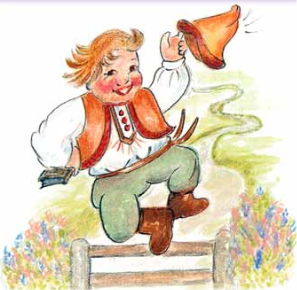
There was a crooked man, and he walked a crooked mile,
He found a crooked sixpence against a crooked stile;
He bought a crooked cat which caught a crooked mouse,
And they all lived together in a little crooked house.
BY MOTHER GOOSE
There was an old woman who lived in a shoe"
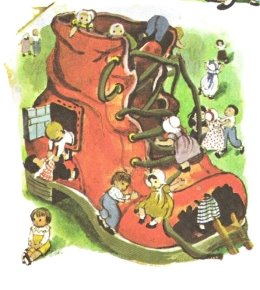
There was an old woman who lived in a shoe.
She had so many children, she didn't know what to do.
She gave them some broth without any bread;
And whipped them all soundly and put them to bed.
BY MOTHER GOOSE
This Little Piggy
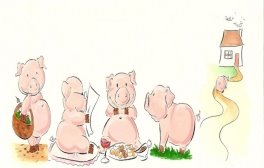
This little piggy went to market,
This little piggy stayed home,
This little piggy had roast beef,
This little piggy had none.
This little piggy went ...
Wee, wee, wee,
all the way home!
BY MOTHER GOOSE
"The three little kittens, they lost their mittens"
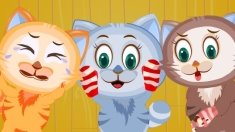
The three little kittens, they lost their mittens,
And they began to cry,
"Oh, mother dear, we sadly fear,
That we have lost our mittens."
"What! Lost your mittens, you naughty kittens!
Then you shall have no pie."
"Meow, meow, meow."
"Then you shall have no pie."
The three little kittens, they found their mittens,
And they began to cry,
"Oh, mother dear, see here, see here,
For we have found our mittens."
"Put on your mittens, you silly kittens,
And you shall have some pie."
"Purr, purr, purr,
Oh, let us have some pie."
The three little kittens put on their mittens,
And soon ate up the pie,
"Oh, mother dear, we greatly fear,
That we have soiled our mittens."
"What, soiled your mittens, you naughty kittens!"
Then they began to sigh,
"Meow, meow, meow,"
Then they began to sigh.
The three little kittens, they washed their mittens,
And hung them out to dry,
"Oh, mother dear, do you not hear,
That we have washed our mittens?"
"What, washed your mittens, then you're good kittens,
But I smell a rat close by."
"Meow, meow, meow,
We smell a rat close by."
BY MOTHER GOOSE
Yankee Doodle
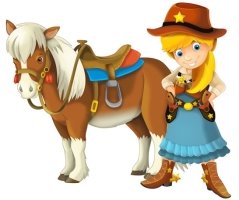
Yankee Doodle went to town,
A-riding on a pony;
Stuck a feather in his hat
And called it macaroni.
BY MOTHER GOOSE
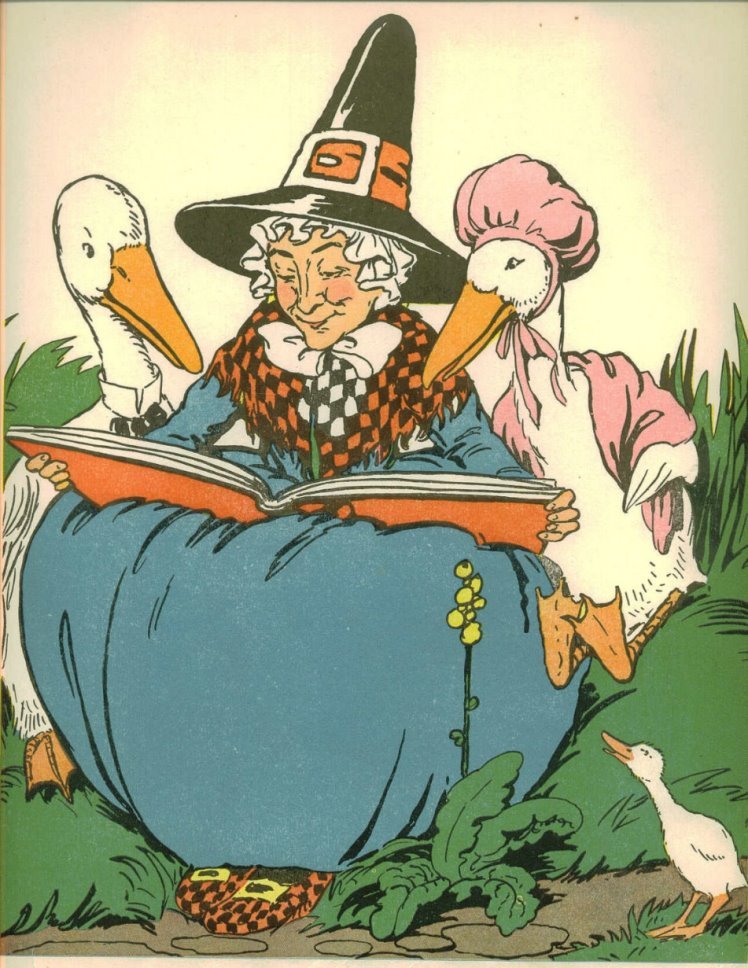


про публікацію авторської розробки
Додати розробку
